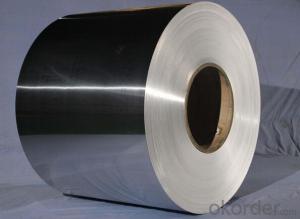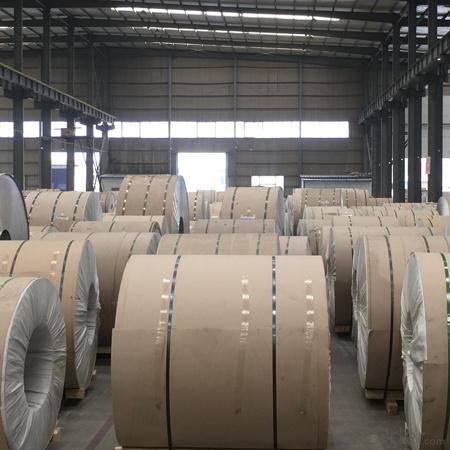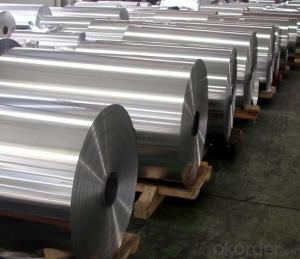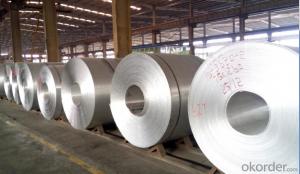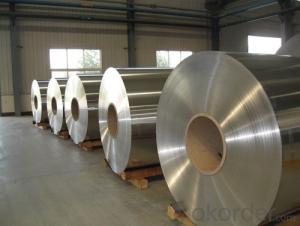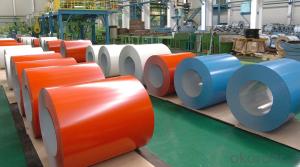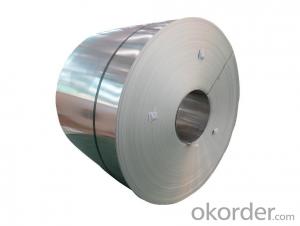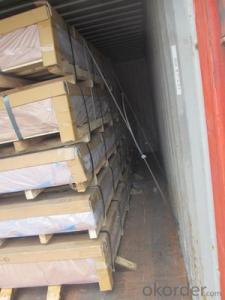Acm Aluminum Coil Stock 1060 H32 Aluminum Rolled Sheet Aluminium Coil
- Loading Port:
- Shanghai
- Payment Terms:
- TT OR LC
- Min Order Qty:
- 5 m.t.
- Supply Capability:
- 500 m.t./month
OKorder Service Pledge
OKorder Financial Service
You Might Also Like
Specification
1060 H32 Aluminum Rolled Sheet Aluminium Coil
aluminum coil specifications:
1) Alloy :1050, 1060,1100, 3003 3004 3105 3A21 5005 5052 etc
2) Temper: O/H12/H14/H1/H18/H32/H34/H36/H38//H111/H112/H116/H321/T6/T651/T3/T351 etc
3) Thickness: 0.1mm to 6mm
4) Width:20mm to 3300mm
5)Coil weight: 100kgs to 6 tons depends on actual requirement
6)Core material: Aluminum or paper
7)Coil Inner diameter: 75mm, 150mm, 200mm, 300mm, 405mm, 505mm or as required
8) Protective film can be added
item | 3003 Aluminum coil | |
Standard | GB/T3190-2008,GB/T3880-2006,ASTM B209,JIS H4000-2006,etc | |
Material | 1060,1050,1100 3003,3103,3004,3005,3105 5052, 5454,5754 | |
Size | Thickness | 0.5mm-3.5mm |
Width | 800-1500mm | |
Weight/Roll | About 1.5MT/3MT | |
Quality control | Mill Test Certificate is supplied with shipment, Third Part Inspection is acceptable. | |
Surface | Bright, polished, hair line, brush, checkered, embossed, etc | |
Trade terms | Price term | ,FOB, CNF, CIF, etc |
Payment Term | TT,L/C | |
MOQ | 2MT | |
20 GP Capacity | About 20-25MT | |
Delivery time | 1.The products will delivery immediately after receiving the payment. 2.According to the order quantity, prompt delivery. | |
Export to | Ireland,Singapore,Indonesia,Ukraine,Spain,Canada,USA,Brazil,Thailand,Korea,Iran,India,Egypt,Kuwait, Oman,Viet Nam, South Africa, Dubai, Russia, etc | |
Package | Stick blue film→plastic film→waterproof paper→1~2 tons on a export standard pallet(corner protection) | |
Application | 1)Further making utensil.2)Solar reflective film3)The appearance of the building4)Interior decorating:ceilings,walls,etc.5)Furniture cabinets6)Elevator decoraction7)Signs,nameplate,bags making.8)Decoration inside and outside the car9)Household appliances:refrigerators,microwave ovens,audio equipment,etc.10)The consumer electronics:mobile phones,digital cameras,MP3,etc. | |
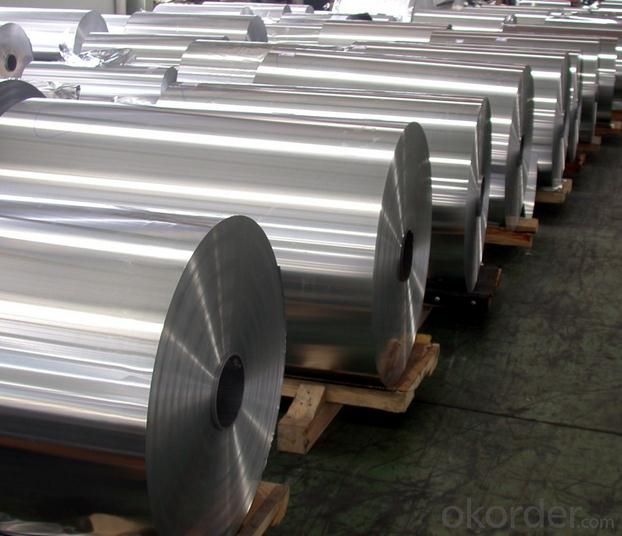
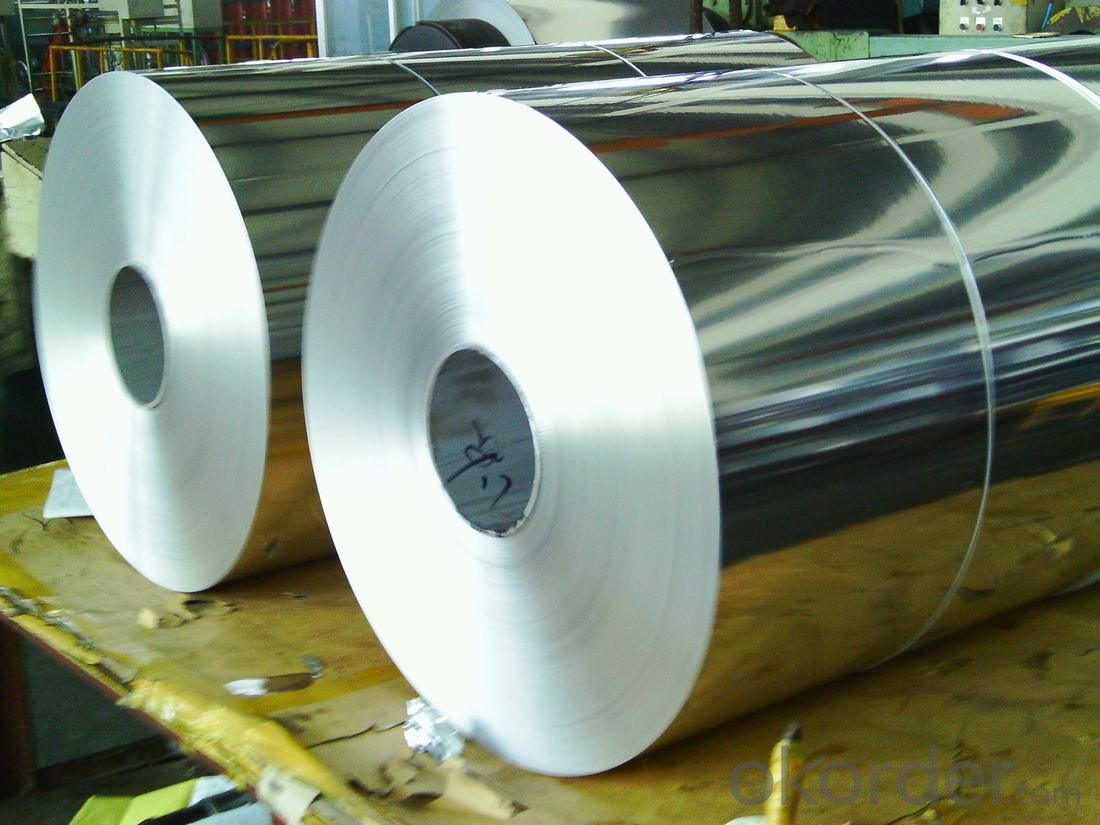
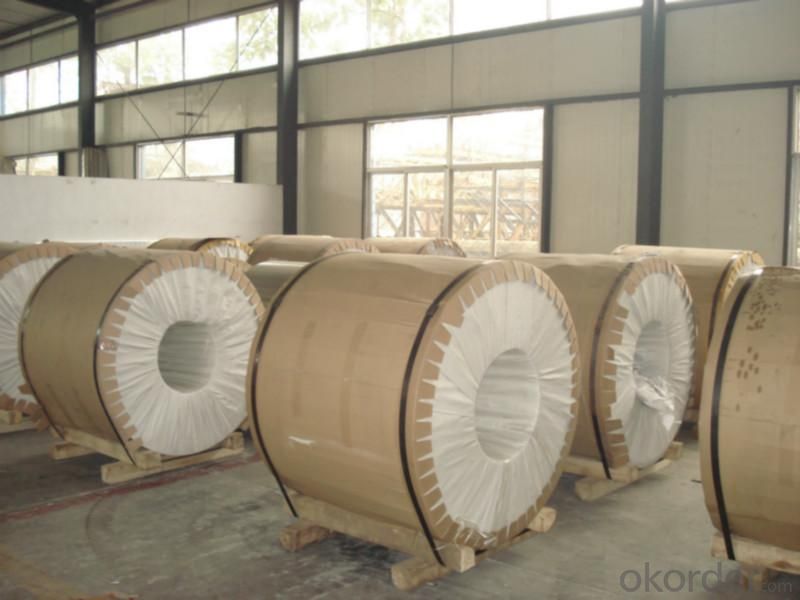
- Q: Can aluminum coils be used in solar panel installations?
- Yes, aluminum coils can be used in solar panel installations. Aluminum is a popular choice for the construction of solar panels due to its lightweight nature, corrosion resistance, and excellent thermal conductivity. Aluminum coils are often used as the backing material for solar panels, providing structural support and heat dissipation. They are also commonly used in the manufacturing of solar mounting systems, which hold the panels securely in place. Overall, aluminum coils are a reliable and efficient option for solar panel installations.
- Q: Can aluminum coils be used in roofing applications?
- Yes, aluminum coils can be used in roofing applications. Aluminum is a popular choice for roofing due to its lightweight nature, corrosion resistance, and durability. Aluminum coils are commonly used in the construction of roofing systems, including standing seam roofs, metal shingles, and flat roofs. The coils are typically formed into panels or sheets that are installed on the roof, providing protection against weather elements and enhancing the aesthetic appeal of the building. Additionally, aluminum's reflective properties can help reduce energy consumption by reflecting sunlight and heat away from the building, making it an environmentally friendly choice for roofing applications.
- Q: Can aluminum coils be used in the production of aluminum garage doors?
- Yes, aluminum coils can be used in the production of aluminum garage doors. Aluminum coils are often used as the primary material for manufacturing aluminum garage doors due to their durability, lightweight nature, and resistance to corrosion.
- Q: What are the common surface treatments applied to aluminum coils?
- To enhance the durability, appearance, and resistance to corrosion of aluminum coils, various common surface treatments can be applied. Anodizing is one such treatment, involving the creation of an oxide layer through an electrochemical process. This not only protects against corrosion but also allows for the use of different colors and finishes. Painting or coating is another popular treatment option. Aluminum coils can be painted in a wide array of colors and coatings, providing extra protection against corrosion and improving their visual appeal. These coatings can be applied using methods like powder coating or liquid spray, offering varying levels of durability and resistance to environmental factors. Laminating is a process where a protective film or layer is added to the surface of aluminum coils. This film enhances resistance against scratches, abrasions, and UV rays, making the coated coil suitable for outdoor applications. Embossing or texturing is another commonly used surface treatment for aluminum coils. This involves creating patterns, designs, or textures on the surface, enhancing visual appeal and providing additional structural strength and grip. In conclusion, the selection of a surface treatment for aluminum coils depends on specific requirements, including desired appearance, durability, and environmental factors. It is important to consider factors like corrosion resistance, weatherability, and aesthetics when choosing the appropriate treatment.
- Q: Are aluminum coils suitable for food processing applications?
- Yes, aluminum coils are suitable for food processing applications. Aluminum is a non-toxic and corrosion-resistant material, making it safe for direct contact with food. It also has excellent heat conductivity, allowing for efficient heating and cooling processes in food processing. Additionally, aluminum coils are easy to clean and maintain, making them a popular choice in the food industry.
- Q: Are aluminum coils resistant to impact damage?
- Aluminum coils, in general, possess resistance to impact damage. The strength-to-weight ratio and durability of aluminum render it less vulnerable to impact damage in comparison to alternative substances. Moreover, aluminum coils are commonly employed across diverse industries, where they encounter a range of environmental conditions and handling procedures, and are engineered to endure such impacts without succumbing to damage. Nevertheless, it is crucial to acknowledge that the degree of impact resistance may fluctuate depending on the precise thickness, quality, and design of the aluminum coil.
- Q: This question asks for methods to protect aluminum coils from damage during storage and transportation.
- <p>To prevent damage to your aluminum coil during storage or transportation, follow these guidelines: Store the coils in a dry and clean environment to prevent moisture and dirt accumulation. Ensure that the storage area is well-ventilated to avoid condensation. Use appropriate padding or separators between coils to prevent scratching or denting. Handle the coils with care, using proper lifting equipment to avoid dropping or mishandling. Secure the coils during transportation to prevent movement that could lead to damage. Keep the coils away from corrosive substances and extreme temperatures. Regularly inspect the coils for any signs of damage and address any issues promptly.</p>
- Q: Can aluminum coils be used in the manufacturing of cans and containers?
- Yes, aluminum coils can be used in the manufacturing of cans and containers. Aluminum is a lightweight and durable material that is widely used in the packaging industry. Aluminum coils are typically rolled into thin sheets, which are then cut and formed into the desired shape for cans and containers. These coils provide a cost-effective and efficient way to produce large quantities of cans and containers, as they can be easily processed and shaped. Additionally, aluminum is a highly recyclable material, making it environmentally friendly and sustainable for the packaging industry. Overall, aluminum coils are commonly used in the manufacturing of cans and containers due to their versatility, durability, and recyclability.
- Q: What is the typical yield strength-to-density ratio for aluminum coils?
- The typical yield strength-to-density ratio for aluminum coils is approximately 0.3 MPa/g/cm^3.
- Q: Are aluminum coils suitable for curtain wall systems?
- Curtain wall systems can greatly benefit from the use of aluminum coils. This lightweight and durable material offers a multitude of advantages. Firstly, aluminum coils possess excellent corrosion resistance, ensuring the long-lasting and sturdy nature of the curtain wall system. This makes them particularly well-suited for exterior applications, where exposure to various weather conditions is inevitable. Moreover, aluminum does not rust, setting it apart from materials like steel. In addition, aluminum coils can be easily extruded into a wide range of shapes and sizes, allowing for flexibility and creativity in the design of curtain walls. This grants architects and designers the opportunity to create visually appealing and distinctive structures. Another notable feature of aluminum is its high sustainability. It is completely recyclable, meaning that it can be reused without any loss in quality. This makes aluminum coils an environmentally friendly choice for curtain wall systems, aligning with the growing demand for sustainable building materials. Furthermore, aluminum possesses excellent thermal and electrical conductivity, which can contribute to energy efficiency in curtain wall systems. By incorporating thermal breaks and insulation, aluminum curtain walls can effectively regulate temperature and reduce energy consumption, resulting in long-term cost savings. In conclusion, aluminum coils are an outstanding option for curtain wall systems due to their resistance to corrosion, versatility, sustainability, and energy efficiency.
Send your message to us
Acm Aluminum Coil Stock 1060 H32 Aluminum Rolled Sheet Aluminium Coil
- Loading Port:
- Shanghai
- Payment Terms:
- TT OR LC
- Min Order Qty:
- 5 m.t.
- Supply Capability:
- 500 m.t./month
OKorder Service Pledge
OKorder Financial Service
Similar products
Hot products
Hot Searches
Related keywords
